Archivio Eventi
![]() Il prossimo Congresso della Società Italiana di Ecologia (S.It.E.) si svolgerà a Catania dal 6 all'8 settembre 2023.
Il prossimo Congresso della Società Italiana di Ecologia (S.It.E.) si svolgerà a Catania dal 6 all'8 settembre 2023.
Una delle sessioni (Chairs: Concetta Gugliandolo - Università di Messina, e Angelina Lo Giudice CNR-ISP) sarà dedicata agli ambienti estremi, hotspots di biodiversità che rappresentano laboratori naturali per indagare i limiti della vita sulla Terra, comprendere i meccanismi di resistenza e resilienza degli estremofili, e studiare gli effetti dei cambiamenti climatici sul biota e sul microbiota.
Il Cnr partecipa quest’anno a “Il Villaggio per la Terra” format ideato da Earth Day Italia, in programma a Roma dal 21 al 25 aprile. Lo scopo dell’iniziativa è promuovere una sensibilità civile ed ambientale nel contesto delle celebrazioni nazionali della Giornata Mondiale della Terra del 22 aprile. Comunicato stampa CNR.
Nel programma delle giornate il laboratorio: Tra i ghiacci polari per studiare la Terra
Attraverso pannelli e filmati i visitatori potranno scoprire le regole di comportamento e i principali studi svolti in questi unici laboratori naturali.
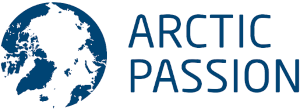 Arctic PASSION is an EU HORIZON 2020 project aiming to co-create and implement of a coherent, integrated Arctic observing system: the Pan-Arctic Observing System of Systems - pan-AOSS. It aims to overcome known flaws in the present observing system by refining its operability, improving, and extending pan-Arctic scientific and community-based monitoring and the integration with Indigenous and Local knowledge, by streamlining the access and interoperability of Arctic Data systems and services, and by ensuring the economic viability and sustainability of the observing system for years to come. The pan-AOOS shall allow for the monitoring of ongoing environmental changes, reduce uncertainly in predicting future system changes, support risk assessment, and inform and guide mitigation and adaptation measures, and to support sustainable development in the Arctic and elsewhere.
Arctic PASSION is an EU HORIZON 2020 project aiming to co-create and implement of a coherent, integrated Arctic observing system: the Pan-Arctic Observing System of Systems - pan-AOSS. It aims to overcome known flaws in the present observing system by refining its operability, improving, and extending pan-Arctic scientific and community-based monitoring and the integration with Indigenous and Local knowledge, by streamlining the access and interoperability of Arctic Data systems and services, and by ensuring the economic viability and sustainability of the observing system for years to come. The pan-AOOS shall allow for the monitoring of ongoing environmental changes, reduce uncertainly in predicting future system changes, support risk assessment, and inform and guide mitigation and adaptation measures, and to support sustainable development in the Arctic and elsewhere.
Annual meeting of the Arctic PASSION project consortium - Timetable
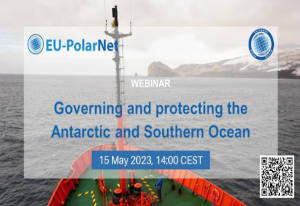 EU-PolarNet 2 and the European Polar Board co-organise a webinar Governing and protecting the Antarctic and Southern Ocean taking place on 15 May 2023 at 14:00 CET (the webinar has been postponed since December 2022).
EU-PolarNet 2 and the European Polar Board co-organise a webinar Governing and protecting the Antarctic and Southern Ocean taking place on 15 May 2023 at 14:00 CET (the webinar has been postponed since December 2022).
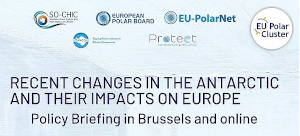 A policy briefing titled “Recent changes in the Antarctic and their impacts on Europe" is being organised in Brussels on the 3rd of May from 14:00 - 16:00.
A policy briefing titled “Recent changes in the Antarctic and their impacts on Europe" is being organised in Brussels on the 3rd of May from 14:00 - 16:00.
The event takes place in the context of increasing pressure on the processes regulating ocean circulation, increased melting of Antarctic sea ice and ice shelves, and increasing scientific awareness of the importance of the region to Europe.
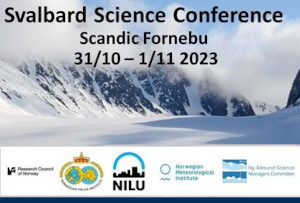 The organizing committee for SSC2023 will be The Research Council of Norway, The Norwegian Polar Institute, Norwegian Institute for Air Research, The Norwegian Meteorological Institute and Svalbard Science Forum.
The organizing committee for SSC2023 will be The Research Council of Norway, The Norwegian Polar Institute, Norwegian Institute for Air Research, The Norwegian Meteorological Institute and Svalbard Science Forum.
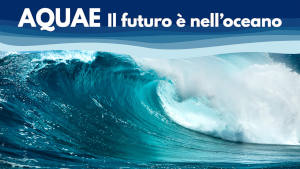 Aquae. Il futuro è nell’oceano è una mostra scientifica che presenta al pubblico un percorso ricco di esperienze interattive sulle più importanti tematiche legate al mare, all’oceanografia e alle tecnologie ad esso collegate.
Aquae. Il futuro è nell’oceano è una mostra scientifica che presenta al pubblico un percorso ricco di esperienze interattive sulle più importanti tematiche legate al mare, all’oceanografia e alle tecnologie ad esso collegate.
A cura del Consiglio Nazionale delle Ricerche_Unità Comunicazione
CNR – Dipartimento scienze del Sistema Terra e Tecnologie per l’Ambiente
CNR – Istituto di Scienze Marine, CNR – Istituto per lo studio degli Impatti Antropici e la Sostenibilità in ambiente marino, CNR – Istituto di Scienze Polari, CNR – Istituto di Ingegneria del Mare
The INStabilities & Thresholds in ANTarctica (INSTANT) Scientific Research Programme aims to quantify the Antarctic ice sheet contribution to past and future sealevel change, from improved understanding of interactions and feedbacks with atmosphere, ocean and solid Earth.
This international conference is the first major conference of this SCAR Scientific Research Programme.
 Towards a pollution free society
Towards a pollution free society
The Environmental Chemistry Division of the Società Chimica Italiana and the University Ca’ Foscari of Venice will organize the 18th ICCE Conference 2023 in Venice (Italy), a biennial conference under the auspice of the Division of Chemistry and the Environment (DCE) of the European Chemical Society (EuChemS).
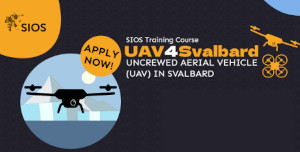 SIOS offers a training course on how to effectively use UAVs in Svalbard research.
SIOS offers a training course on how to effectively use UAVs in Svalbard research.
The goal of the course is to teach participants the basic skills needed to use UAVs in Svalbard.
Location: Longyearbyen, Svalbard
More...
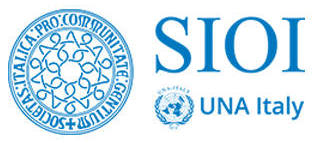 La Società Italiana per l’Organizzazione Internazionale – SIOI e Unitelma Sapienza, d’intesa con il Ministero degli Affari Esteri e della Cooperazione Internazionale, il CNR, l’UiT The Arctic University of Norway, la Nord University of Bodø organizzano il Master in Sviluppo Sostenibile, Geopolitica delle risorse e Studi Artici.
La Società Italiana per l’Organizzazione Internazionale – SIOI e Unitelma Sapienza, d’intesa con il Ministero degli Affari Esteri e della Cooperazione Internazionale, il CNR, l’UiT The Arctic University of Norway, la Nord University of Bodø organizzano il Master in Sviluppo Sostenibile, Geopolitica delle risorse e Studi Artici.
Maggiori dettagli sul sito SIOI.org
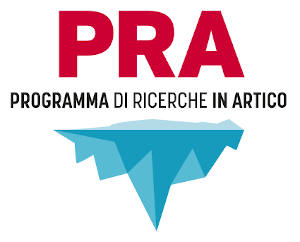 Convegno organizzato dal Dipartimento DSSTTA
Convegno organizzato dal Dipartimento DSSTTA
(10:00-18:00) Aula Convegni - CNR Sede centrale - Roma
La giornata è il punto di arrivo dei primi tre anni di attività del Programma di Ricerche in Artico (PRA), che ha emesso nello scorso triennio tre differenti bandi di finanziamento, due rivolti ad attività di ricerca e uno al potenziamento delle infrastrutture in Artico.
Il Programma di Ricerche in Artico. Le sfide della ricerca: i dati presentati
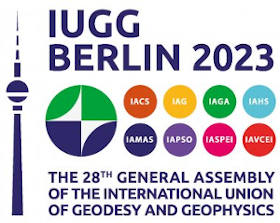 The next IUGG General Assembly will take place in Berlin in Germany 11-20 July 2023, with the cryosphere sessions all being scheduled for 12-16 July. The scientific program includes 15 IACS sessions on glaciers, ice sheets, sea ice, snow and permafrost, and more than 15 cryosphere-related symposia joint with other IUGG associations.
The next IUGG General Assembly will take place in Berlin in Germany 11-20 July 2023, with the cryosphere sessions all being scheduled for 12-16 July. The scientific program includes 15 IACS sessions on glaciers, ice sheets, sea ice, snow and permafrost, and more than 15 cryosphere-related symposia joint with other IUGG associations.
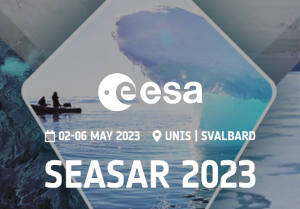 Twenty years after ESA’s 2003 workshop on Coastal and Marine applications of SAR (ESA SP-565), the SeaSAR workshop is returning to Svalbard from 2-6 May 2023.
Twenty years after ESA’s 2003 workshop on Coastal and Marine applications of SAR (ESA SP-565), the SeaSAR workshop is returning to Svalbard from 2-6 May 2023.
The format of the workshop will be similar to the 2003 workshop and will be organized around keynote presentations and thematic discussions.
 Ministero dell'Universita e Ricerca
Ministero dell'Universita e Ricerca
Programma Ricerche Artico
Programma Nazionale di Ricerca in Antartide
 Ministero degli Affari Esteri e della Cooperazione Internazionale
Ministero degli Affari Esteri e della Cooperazione Internazionale
L'Italia e l’Artico
L’Italia e l’Antartide
CNR-ISP
Consiglio Nazionale delle Ricerche
Istituto di Scienze Polari
c/o Campus Scientifico - Università Ca' Foscari Venezia - Via Torino, 155 - 30172 VENEZIA MESTRE (VE)
Salvo diversa indicazione, il contenuto di questo sito è concesso in licenza : Attribuzione - Non commerciale - Condividi allo stesso modo 4.0 Internazionale (CC BY-NC-SA 4.0) 
Privacy policy e Cookie policy - Amministrazione trasparente CNR








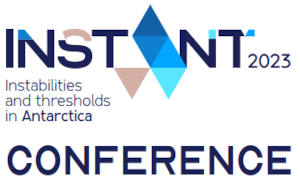 SCAR INSTANT Conference
SCAR INSTANT Conference 
